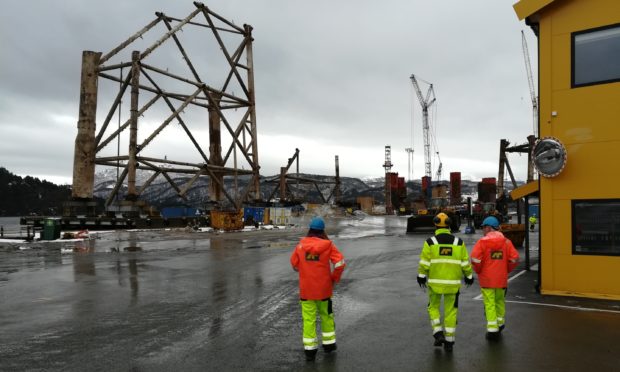North Sea operators have shelved more than half a billion pounds of decommissioning spending, according to a new report from Oil and Gas UK (OGUK).
In its 11th Decom Insight Survey, OGUK said decommissioning has “not escaped” the unprecedented conditions of Covid-19 which have struck the industry.
As a result, around £514 million, due to be spent between 2020 – 2022, has been delayed “into the future”, with reduced activity expected “across all areas” over the next three years.
The majority of this comes from 2020, which has seen a 30% drop in forecast decom spending, from £1.47 billion at the start of the year down to around £1.08bn.
A £109m drop is projected for 2021, to a total of £1.19bn, and 2022 will dip by £15m to a total of £1.16bn, according to OGUK’s figures.
The group said the cut in spending, coupled with Covid restrictions, has “increased pressure on the decommissioning supply chain, who were still recovering from the previous downturn”.
Despite this, several successful projects have been completed, such as the Brent Alpha and Ninian Northern removals earlier in the year.
Although it is not unusual for efficiencies to lead to lower spending than forecast, OGUK said well decommissioning, which accounts for roughly 50% of total costs, is at its lowest level since 2016.
Some projects are being conducted thanks to low rates in the market, but this also brings a threat to the supply chain, according to OGUK decom manager Joe Leask.
He said: “The reduced expenditure this year will place pressure on the supply chain, and we could see some elements of the supply chain succumb to that pressure if we don’t look to stimulate activity.
“If we do see that scenario we could see less competition in the future, and indeed that could increase rates going forward.”
Decom is estimated to account for 10% of the total spending in the UK North Sea this year – on the other end of the life cycle, exploration and appraisal activity is at its lowest in the sector’s history.
OGUK said the “specialist skills” of the supply chain can be used for emerging opportunities in the circular economy, offshore wind and hydrogen.
It comes just days after RMT union boss Jake Molloy told a Scottish Trade Unions Congress event that there is a lack of work in renewables and decommissioning for the thousands of oil workers being made redundant.
Alex Kemp, petroleum economist at Aberdeen University, said the figures come as a result of “cash strapped operators”, and more fields are expected to reach the end of their lives due to the price crash.
He said: “There is quite a bit of pent-up work, but when it will happen will depend on what happens to cash flows of the investors.
“For specialist supply chain companies in decommissioning, that (£500m) is quite a lot.
“Particularly when the supply chain is clearly suffering a lot because there is very little exploration.”










